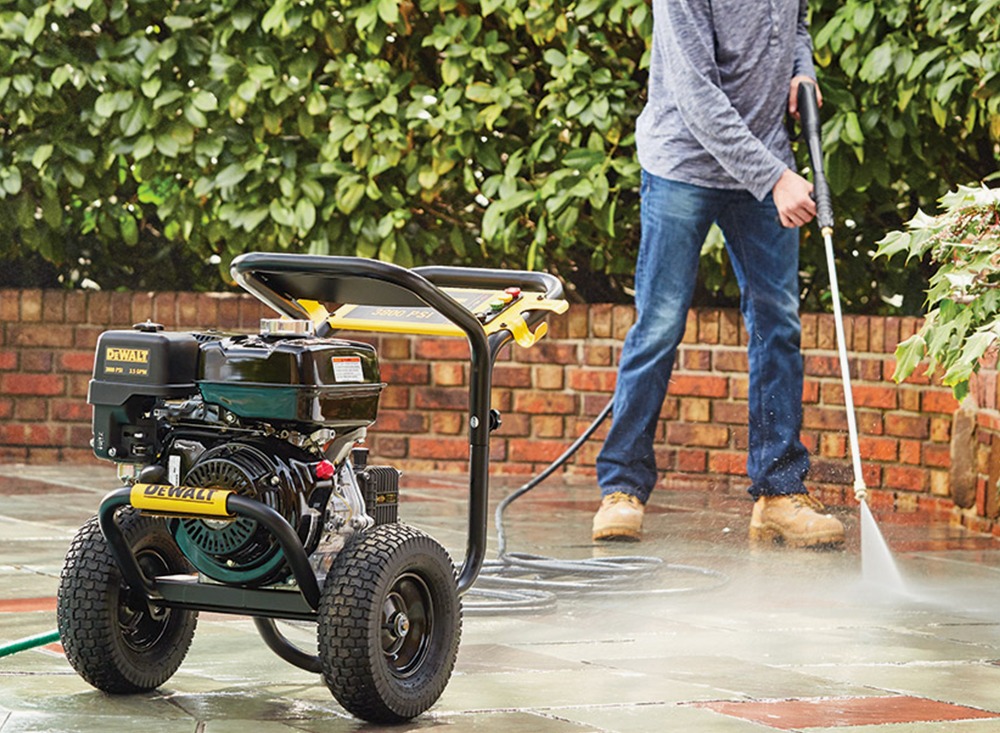Choosing the Best Pressure Washer for Homeowners: Ideal Specifications for Various Cleaning Tasks
Teaching how to choose a pressure washer for home owners to clean their property on a regular maintenance schedule
EXTERIOR CLEANING SERVICE PROCESSESBASIC HOME MAINTENANCECURB APPEALPRESSURE WASHING SERVICES


Understanding Pressure Washer Specifications
When choosing a pressure washer, understanding its specifications is essential for making an informed decision. The primary metrics to consider are PSI (pounds per square inch) and GPM (gallons per minute). These metrics collectively determine the pressure washer's performance and suitability for various cleaning tasks.
PSI measures the pressure output of the washer. Higher PSI values typically correlate with more powerful cleaning capabilities. For instance, light tasks such as cleaning vehicles or patio furniture may require a pressure washer with a PSI range of 1200-1900. Medium-duty tasks, like washing fences or driveways, may benefit from PSI values between 2000-2800. Heavy-duty cleaning, involving stubborn stains or large areas like house exteriors, often necessitates a PSI above 2900. Understanding your specific cleaning needs helps in selecting an appropriate PSI level for effectiveness.
GPM, on the other hand, measures the water flow rate. A higher GPM indicates more water volume, which can speed up the cleaning process. When paired with a suitable PSI, a higher GPM ensures that surfaces are cleaned efficiently without consuming excess time. Homeowners commonly find a GPM range of 1.5 to 2.5 adequate for most tasks, balancing both pressure and water usage.
Achieving an optimal balance between PSI and GPM is crucial. A pressure washer with high PSI but low GPM may clean effectively but slowly, whereas high GPM with low PSI could waste water without achieving the desired cleaning power. Therefore, choosing a machine providing an equilibrium of these measurements is beneficial for versatility.
Another decision homeowners must make involves selecting between electric and gas-powered pressure washers. Electric pressure washers are generally quieter, easier to maintain, and suitable for light to medium tasks. However, they lack the power and portability of gas-powered models, making the latter more suitable for heavy-duty or off-grid cleaning scenarios. Gas-powered pressure washers offer greater mobility and strength but can be noisier, require more maintenance, and produce emissions.
Understanding these core specifications helps homeowners choose a pressure washer tailored to their specific needs, ensuring efficient and effective cleaning for various tasks.
Specifications for Siding, Concrete, and Wooden Deck Cleaning
When it comes to maintaining the exterior of your home, selecting the right pressure washer specifications is crucial to effectively clean different surfaces without causing damage. Each type of surface—whether it's siding, concrete, or wooden decks—requires specific pressure levels to achieve optimal results while preserving structural integrity.
Starting with siding, an appropriate pressure washer range is between 1500 to 2500 PSI. This range allows for effective cleaning without risking the integrity of the siding material. Whether your house features vinyl, aluminum, or fiber cement siding, sticking to this PSI range ensures you can remove dirt, mold, and mildew without peeling paint or dislodging panels. Additionally, an adjustable nozzle is beneficial, enabling you to fine-tune the pressure and use a wider spray pattern to further mitigate the risk of damage.
For concrete surfaces such as driveways and sidewalks, a higher pressure level is necessary to tackle tougher stains and deeply embedded grime. A pressure washer operating between 2500 to 3000 PSI is ideal for these applications. The higher PSI effectively removes oil stains, tire marks, and algae deposits, providing a thorough cleaning that restores the concrete's original appearance. Pairing the pressure washer with a rotating nozzle or surface cleaner attachment can further enhance the cleaning efficiency and prevent streaking.
Wooden decks, on the other hand, require a gentler approach. A PSI range of 1500 to 2000 is recommended to clean wooden surfaces without causing splintering or gouging. Using a lower pressure setting allows you to remove dirt and algae buildup while preserving the natural grain and finish of the wood. An adjustable nozzle is essential in this instance as well, giving you the flexibility to regulate the pressure and spread the water flow evenly to avoid concentrating on any particular spot for too long.
In summary, understanding the pressure requirements for different surfaces is indispensable for effective and safe cleaning. An adjustable nozzle or interchangeable tips are highly recommended accessories that can help you customize the water pressure, ensuring the task is efficiently handled without causing unnecessary damage.
Special Considerations for Pool Deck Cleaning
Cleaning a pool deck presents unique challenges that require careful consideration of both the surface material and the cleaning equipment. Whether your pool deck is made of concrete, stone, or composite wood, the choice of pressure washer specifications plays a crucial role in achieving an effective clean while preserving the deck's integrity. Typically, a mid-range pressure setting between 2000 and 2500 PSI is recommended. This range is sufficient to remove common contaminants such as algae, mildew, and dirt without causing damage to the surface.
The material of your pool deck significantly influences the cleaning approach. For instance, concrete pool decks are durable and can handle higher pressure settings within the recommended range. Conversely, composite wood and certain types of stone may be more sensitive, necessitating caution to avoid surface damage. Adjusting the nozzle angle and maintaining a moderate distance from the deck surface can aid in achieving a thorough clean without harm.
In terms of safety, it’s essential to ensure that the surrounding area is not overly slippery during and after cleaning. Using a surface cleaner accessory can help in this regard by providing even pressure distribution, which minimizes the risk of over-saturating the deck and creating hazardous conditions. This is particularly important around pool areas where slips and falls can be a significant concern.
Additionally, the use of appropriate detergents can enhance the cleaning process. When selecting cleaning solutions, opt for biodegradable detergents that are safe for use around the pool. These products are effective in breaking down organic matter and stains while being gentle on the environment and safe for swimmers.
Incorporating these considerations ensures a balanced and effective approach to maintaining the cleanliness and safety of your pool deck. Whether you're tackling algae build-up or general dirt, selecting the right pressure washer and accessories tailored to your deck material will result in optimal cleanliness and preservation.
